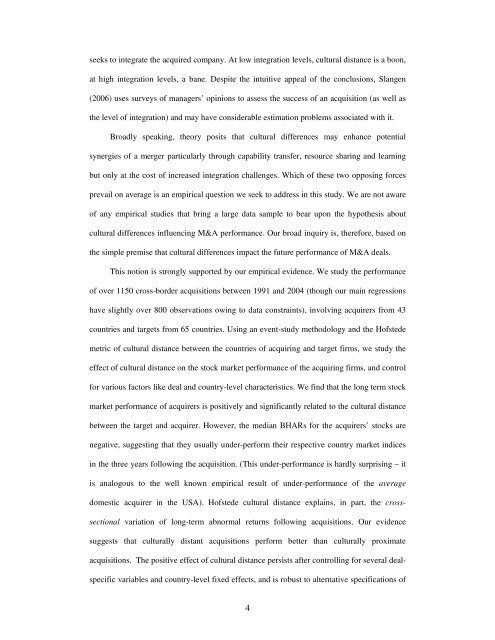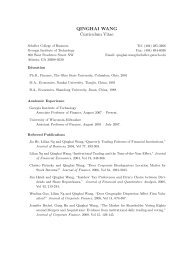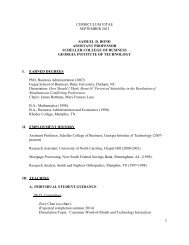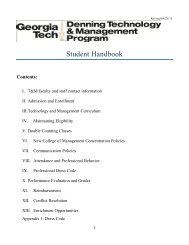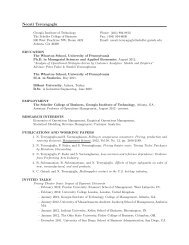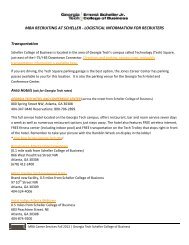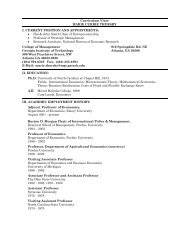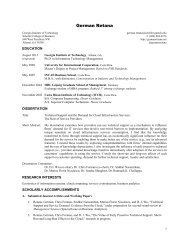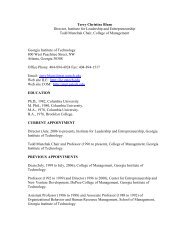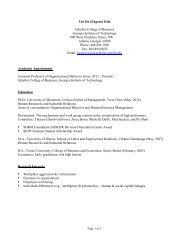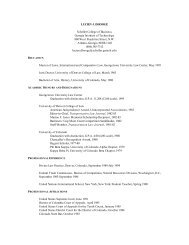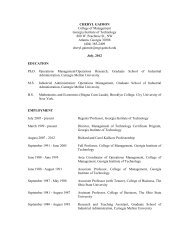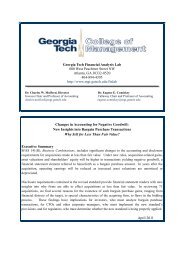Mars-Venus Marriages: Culture and Cross-Border M&A
Mars-Venus Marriages: Culture and Cross-Border M&A
Mars-Venus Marriages: Culture and Cross-Border M&A
Create successful ePaper yourself
Turn your PDF publications into a flip-book with our unique Google optimized e-Paper software.
seeks to integrate the acquired company. At low integration levels, cultural distance is a boon,<br />
at high integration levels, a bane. Despite the intuitive appeal of the conclusions, Slangen<br />
(2006) uses surveys of managers’ opinions to assess the success of an acquisition (as well as<br />
the level of integration) <strong>and</strong> may have considerable estimation problems associated with it.<br />
Broadly speaking, theory posits that cultural differences may enhance potential<br />
synergies of a merger particularly through capability transfer, resource sharing <strong>and</strong> learning<br />
but only at the cost of increased integration challenges. Which of these two opposing forces<br />
prevail on average is an empirical question we seek to address in this study. We are not aware<br />
of any empirical studies that bring a large data sample to bear upon the hypothesis about<br />
cultural differences influencing M&A performance. Our broad inquiry is, therefore, based on<br />
the simple premise that cultural differences impact the future performance of M&A deals.<br />
This notion is strongly supported by our empirical evidence. We study the performance<br />
of over 1150 cross-border acquisitions between 1991 <strong>and</strong> 2004 (though our main regressions<br />
have slightly over 800 observations owing to data constraints), involving acquirers from 43<br />
countries <strong>and</strong> targets from 65 countries. Using an event-study methodology <strong>and</strong> the Hofstede<br />
metric of cultural distance between the countries of acquiring <strong>and</strong> target firms, we study the<br />
effect of cultural distance on the stock market performance of the acquiring firms, <strong>and</strong> control<br />
for various factors like deal <strong>and</strong> country-level characteristics. We find that the long term stock<br />
market performance of acquirers is positively <strong>and</strong> significantly related to the cultural distance<br />
between the target <strong>and</strong> acquirer. However, the median BHARs for the acquirers’ stocks are<br />
negative, suggesting that they usually under-perform their respective country market indices<br />
in the three years following the acquisition. (This under-performance is hardly surprising – it<br />
is analogous to the well known empirical result of under-performance of the average<br />
domestic acquirer in the USA). Hofstede cultural distance explains, in part, the crosssectional<br />
variation of long-term abnormal returns following acquisitions. Our evidence<br />
suggests that culturally distant acquisitions perform better than culturally proximate<br />
acquisitions. The positive effect of cultural distance persists after controlling for several dealspecific<br />
variables <strong>and</strong> country-level fixed effects, <strong>and</strong> is robust to alternative specifications of<br />
4


